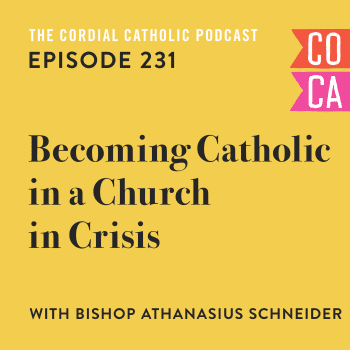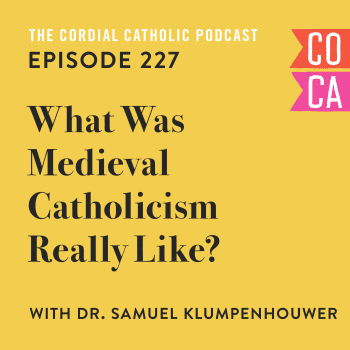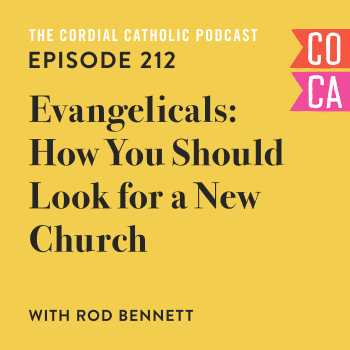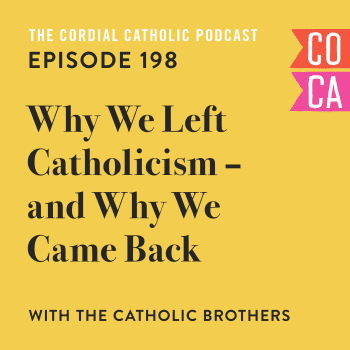
After a rousing thirty minutes of worship music, I settled into my seat to listen to the sermon. It was Trinity Sunday and this week we’d be taking a break from our Ship Series—you know, friendship, discipleship, worship—to talk about the Holy Trinity. God as Father, Son, and Holy Spirit.
(We were a medium-sized, fiercely Pentecostal, community church.)
The sermon began by talking about how hard it is to conceive of a triune God—a God that is three-in-one. It’s a concept notoriously difficult to grasp even for the most holy and brilliant theologians down through history. But, we tackled it anyway, and it was going remarkably well until the pastor took a left turn about twenty minutes in.
“God,” he said, “is simply a god that reveals himself in different ways.”
He continued, “For example, God revealed himself to us as a Father to help us relate to his paternal side. Then, God revealed himself as Christ to help us understand his love for humanity. And God revealed himself to us as a Spirit to better connect to our spiritual side.”
“God simply revealed himself to us in different ways to be more relatable. After all, it’s all the same God.”
Except, well, it’s not.
Modalism vs. Trinitarianism
The idea that God is simply one god who reveals himself in different ways throughout time is a heresy long-condemned by the historical Christian Church. It’s called Modalism based on the notion that God reveals himself in different “modes.”
It’s completely wrong, at least according to the majority of the Christians throughout the majority of time. God doesn’t appear in different modes but rather as a Trinity—three distinct persons of God. Father, Son, and Holy Spirit aren’t merely aspects or revelations of different parts of God but they are God—all three.
In fact, this ancient misconception of God was roundly condemned many times through the history of the Church.
But this is the problem: so many Christians simply don’t know their Church history. And so many Christians, unfortunately, end up believing heresies like this.
And misconceptions about God which were ostensibly quashed centuries ago are suddenly making a comeback in an era of Christianity that—like all areas of our culture—is becoming increasingly untethered from its historical moors.
The Meaning of the Eucharist
Take the Eucharist, for example.
There’s solid evidence both from the Bible and from Church history that the earliest Christians believed in Christ’s real presence in the Eucharist. In other words, when the Early Christians celebrated Communion they believed that through supernatural circumstances the bread and wine actually became Christ’s flesh and blood.
The case, in my opinion, is beyond dispute.
But divorced from our Christian heritage, many modern day believers have no idea that this was the theological norm for the first 1,500 years of Church history. Indeed, until Martin Luther and his reformers came along Christians were united in their belief about what happened during the Lord’s Supper.
For the first thousand and a half years.
And, no matter what you think about the Catholic or Orthodox churches who still hold fast to this belief isn’t it at least worth exploring an idea that was held by all Christians for most of Christian history?
I think so, but we just don’t take the time.
The Case for Reading Church History
There are plenty of great books out there on Church history. In fact, there are a lot, and sometimes sifting through all the different options might be a little daunting but reading about the history of the Church, I would strongly suggest, is of the utmost importance.
Why do we believe what we believe?
Where do our beliefs come from?
And what did Christian believers before us think?
These are important things to ask and have answered because without understanding our collective history we’re liable to be led back into old mistakes we’ve made before.












